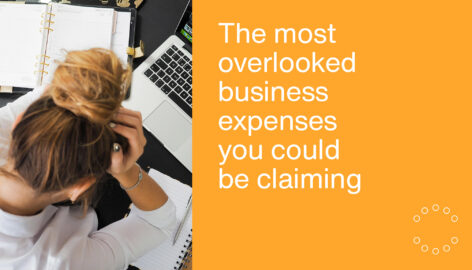In the business sector, many people are still talking about the Coronavirus pandemic in terms of the ‘new normal’, when there’s actually nothing ‘new’ about it. It’s called Covid-19 because it was discovered in 2019, and it’s been present in the UK since at least January 2020, so the time has long since passed when the abnormal, life-threatening situation we find ourselves in, can in any way be described as a recent development.
Since the initial seismic cultural, commercial and societal shock, it’s all been about crisis management, or mismanagement. So when it comes to anticipating what happens next, where is the smart money?
Business survival is about how quickly companies move.
Whether the most successful businesses emerge unscathed depends on how quickly they can switch from survival mode, to revival mode.
In 2001, I was working at Rolls-Royce plc, the second biggest manufacturer of airline engines in the world and global leader in defence contracting. Everything I know about the need for massive business change, executed at speed, I learned in the hours, days and weeks after the 9/11 attacks. Nearly 20 years later, I still rely heavily on the key discoveries I made during the time I worked with world-class titans in business change management, such as learning that a business – no matter how cumbersome to manoeuvre – must respond effectively and powerfully to events, and do it rapidly.
Some businesses in our sector have behaved like rabbits in the proverbial headlights, seemingly powerless to help clients avoid the oncoming impact of Covid-19. At Charterhouse, our focus on providing sensible, pragmatic ideas and advice means that we haven’t been rooted to the spot wondering what’s about to hit us. Instead, we’ve helped many businesses to respond in a more agile fashion, by not only recognising the immediate danger and taking relevant evasive action, but also giving them the sound, well-considered advice which will get them back on the road to success.
Those who prepare, prosper.
Just one example is the way we’ve encouraged our self-employed clients who missed out on government funding in the first lockdown to incorporate and set up a PAYE scheme, so that they might be furloughed during subsequent lockdowns. That was (and remains) solid, sensible, cost-effective advice. During the extension to furlough (November 2020-March 2021) clients who followed that advice will receive additional government support of up to £10,000 – funds which in many cases, are vital for survival.
We started prepping for a second lockdown in May and are currently working with our clients to get ready for the third lockdown. Whilst we were certain that the second lockdown was coming, we’re fairly sure the third one won’t materialise. But if it does, we’ll be as ready as we can be.
We may not have seen the Covid-19 crisis coming but our proven ability to help businesses prepare for what, in the short term at least, may be an uncertain fiscal future has meant that they move into 2021 with guarded optimism, rather than unbridled trepidation.
Recently, we’ve worked hard with clients to anticipate and navigate the difficult business decisions which will help them prepare for the future. In our view, adopting an insight-driven approach rather than one informed by hindsight can often mean the difference between a company surviving a business shock, or not. If we avoid the difficult decisions, they won’t go away, but the business future just might.
Practical and geographical solutions: business life after Brexit.
On a more positive note, we’ve also worked with many clients on helping them to move onto online platforms, setting up delivery services or pivoting so they can offer takeaway or other value-added services. Some have diversified, others have simplified, all have worked hard with us to gain competitive advantage and help their business thrive in the future.
Some of our suggestions have been not just practical, but geographical. We’ve been advising some clients on re-headquartering into Europe ahead of the end of Brexit transition, and advised many more clients on preparing for the brave new world of 1st January 2021. There’s so much uncertainty, but as the adage goes ‘we need to prepare for the worst and hope for the best’.
In short, our business-minded, financially focused approach has ensured that while others may have been contemplating their navels or considering which iron they need to get out of the rough on the 13th, we’ve been out there, working with our clients, making informed decisions, looking at data and trends, and figuring out how to make the best of things, when everything is in a state of flux.
If your accountant isn’t engaging with you in quite the same way, the smart thing to do, may be to think twice about engaging their services for the 2021-22 financial year.










